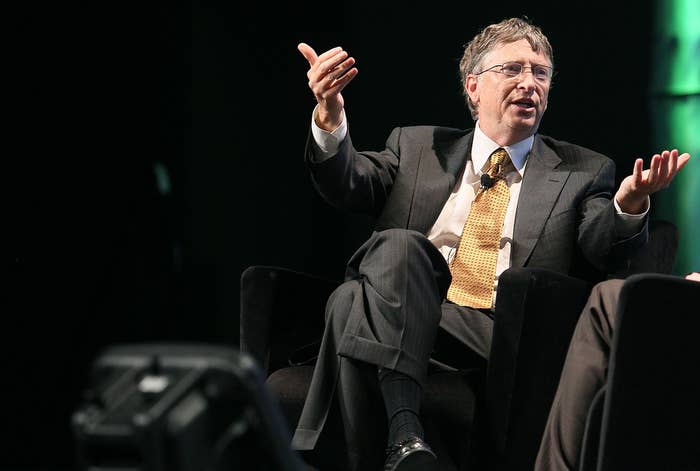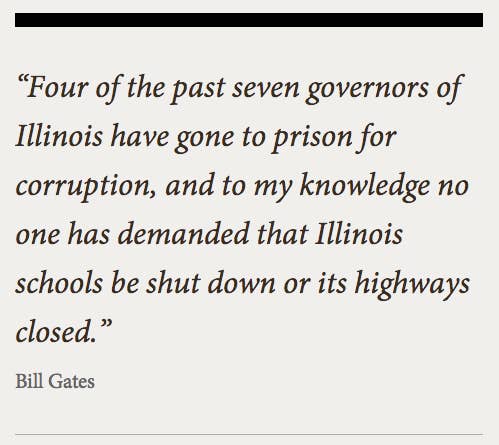
Critics of foreign aid often argue that it does little good for a simple reason: so much of it is stolen.
But Bill Gates, America's largest-scale philanthropist and a major investor in global public health, made the opposite case Tuesday: Corruption, he said in his foundation's annual letter and in an interview, is a modest cost of doing business, and hardly confined to the developing world.
"Anyone who wants there to be zero corruption should just go in their room and shut their door," he said. "Don't go to Illinois, don't go to New Jersey."
"It is true that when health aid is stolen or wasted, it costs lives. We need to root out fraud and squeeze more out of every dollar," Gates and his wife, Melinda, wrote in the letter, released early Tuesday morning. "But we should also remember the relative size of the problem… Suppose small-scale corruption amounts to a 2 percent tax on the cost of saving a life. We should try to reduce that. But if we can't, should we stop trying to save lives?"
Gates wrote in the letter that he saw the public overreaction to corruption up close amid press coverage of local officials pocketing six-figure sums of Gates Foundation spending to fight AIDS, tuberculosis, and malaria in Cambodia. Some of the coverage cast Gates as a dupe whose money was being wasted.
"I appreciate the concern," Gates wrote of the debacle, "and it's a good thing when the press holds institutions accountable. But the press didn't uncover this scheme. The Global Fund did, during an internal audit. In finding and fixing the problem, The Global Fund did exactly what it should be doing."

Gates told BuzzFeed Tuesday morning that corruption is not a major deterrent for the Gates Foundation's work in global health, in part because of how easy it is to detect it.
"If you get corruption, your measurement system is going to show that. If we pay for health improvement, we can see that that the vaccines got delivered, we can measure the coverage. In fact there are a few diseases like measles that, if you're not getting your vaccine coverage, you'll see measles deaths go up," he said.
"When you have humans executing programs," Gates added, "You have to track pretty carefully."
Gates said health and agricultural aid measures — which constitute about a third of U.S. foreign aid, and most of Gates' international work — are relatively easy to track.
"The road to a country being self-sustaining [includes] infrastructure, education, governance, as well as health and agriculture," he said. "It's when those magically all come together that you get Mexico, Brazil, China. They don't need aid anymore, so you get to focus [aid]. You have more rich countries giving to less poor countries, so aid intensity in Africa has gone up, and you see Rwanda, Ethiopia, a lot of them improving their health statistics pretty dramatically [in] the last decade. Africa's been a higher beneficiary."

